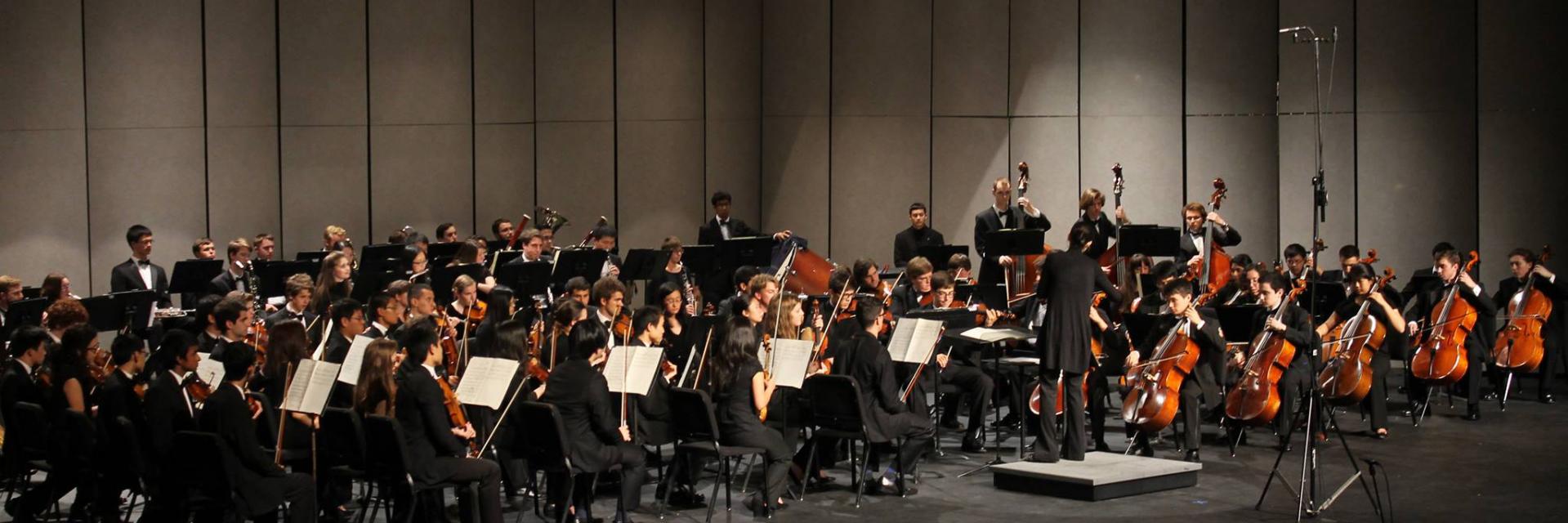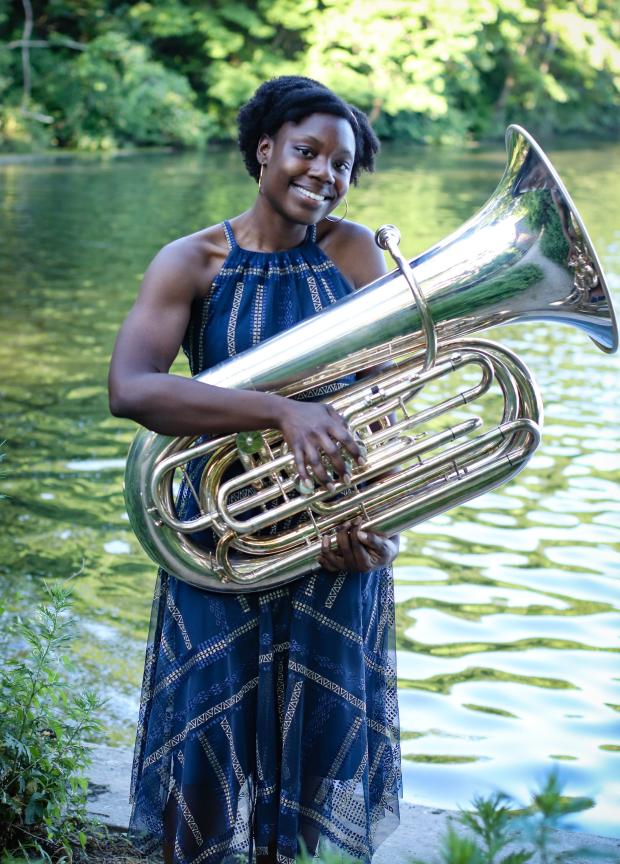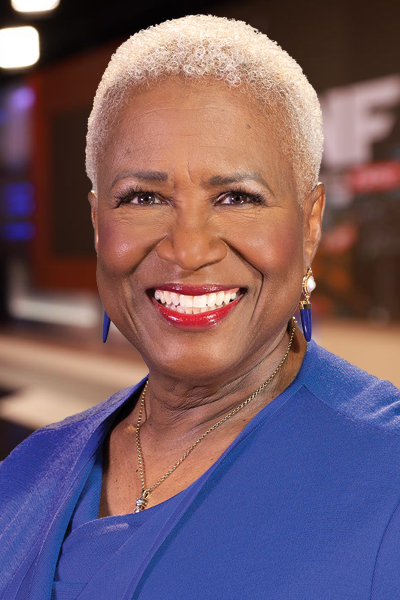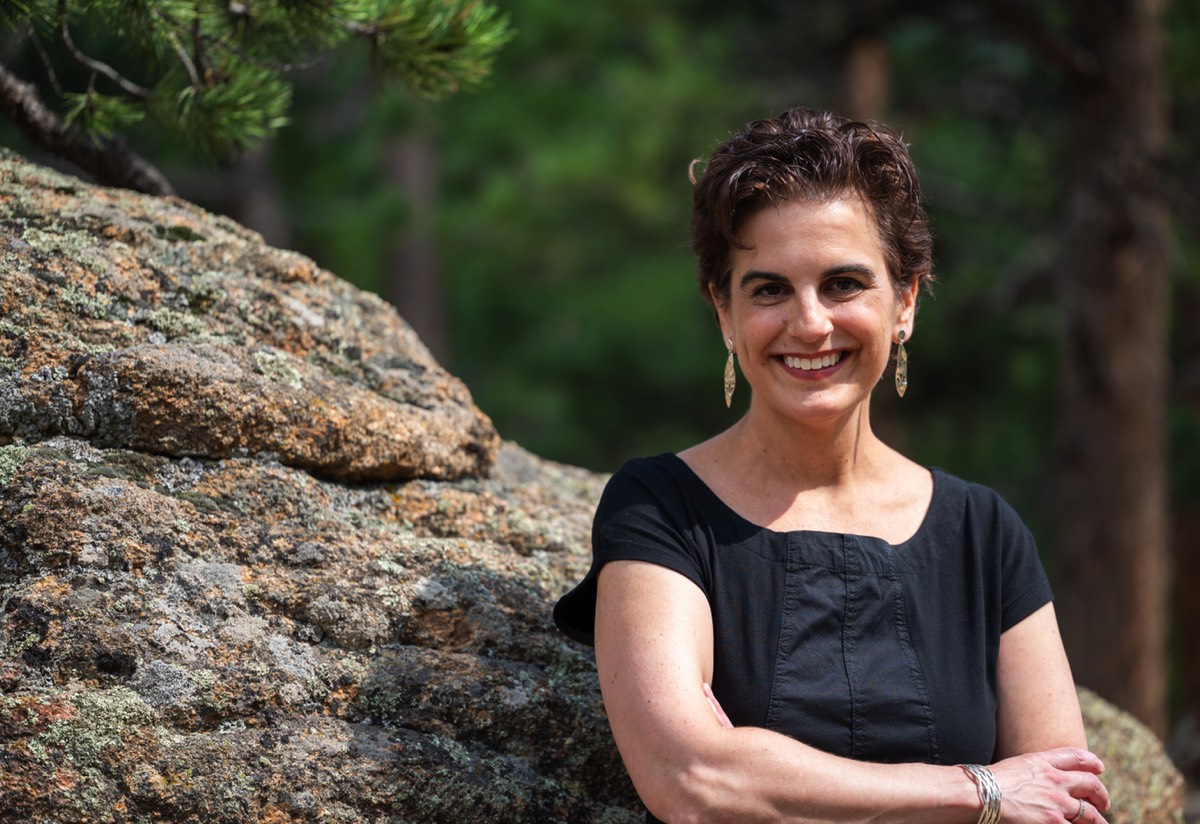
Georgia Tech School of Music Presents:
Silenced Voices
Georgia Tech School of Music Presents:
Silenced Voices
Thursday, March 2nd
7:30pm
Ferst Center for the Arts
Chaowen Ting, Chamber Orchestra Director
Description
For the sixth installment of the Concert Orchestra and Chorale series, the choir and orchestra will perform a selection of pieces representing the voices of minorities and disadvantaged groups and exploring those causes that are worth fighting for. The Chamber Choir opens with Užežero ugnys dega, a story about a child being orphaned, followed by the Chorale performing Keep Your Lamps, an African American spiritual. Next, the Concert Orchestra presents the world premiere of Jasmine Pigott’s arrangement of In the Bottoms, a five-movement suite by Nathaniel Dett depicting various scenes of African-American life in the river bottoms of the South. Pigott is then featured as a soloist in a performance of Vaughan Williams’ Tuba Concerto. Also included are two movements of Borodin’s Symphony No. 2, with the first movement portraying a gathering of knights and the last movement calling to mind the festivities of their feast. Rounding out the concert is Stacy Garrop’s The Battle for the Ballot, commemorating the passage of the 19th Amendment, with Monica Pearson narrating lines taken from the speeches and writings of several prominent women suffragists.
Repertoire
Georgia Tech Chamber Choir
|
Užežero ugnys dega |
Georgia Tech Chorale
|
Keep Your Lamps |
Georgia Tech Concert Orchestra
|
In the Bottoms: Introduction and Juba Dance (1913/2022) [East coast premiere] |
Robert Nathaniel Dett
(1882 - 1943)
arr. Jasmine Pigott
|
|
Tuba Concerto in F Minor (1954) I. Prelude. Allegro moderato II. Romanza. Andante sostenuto III. Finale - Rondo alla Tedesca. Allegro Jasmine Pigott, tuba |
Ralph Vaughan Williams
(1872 - 1958)
|
|
The Battle for the Ballot (2020) Monica Kaufman Pearson, narrator |
Stacy Garrop |
|
Symphony No. 2 in B minor, "The Bogatyrs" (1869 - 1876) I. Allegro moderato IV. Finale. Allegro |
Aleksander Borodin (1833 - 1887) |
On mobile devices, scroll to the left to view full table contents.

Soloist Bio – Jasmine Pigott:
Jasmine “Jazzie” Pigott is a tuba player, composer, podcaster, and writer based in Baltimore, MD. Believing in the power of representation, Jasmine is a solo performer on a mission to empower the next generation of musicians of color. She has placed in numerous solo competitions, including first place in Peabody’s Yale Gordon Competition and bronze in the Leonard Falcone Tuba Student Competition, and has released her EP in July 2022, Revolution. Jasmine is a co-founder and on the board of directors for the Chromatic Brass Collective. Outside of music, Jasmine is a certified personal trainer and runs a blog and podcast, Harmony and Healing, centered around health and wellness for musicians. She holds degrees from Ithaca College (B.M.) and Michigan State University (M.M.) and is working on her DMA in tuba performance at the Peabody Conservatory at Johns Hopkins.

Artist Bio – Monica Pearson:
Monica Kaufman Pearson is the first woman and first minority to anchor the daily evening news in Atlanta, GA, where she worked for 37 years at WSB TV. After being retired for 10 years, Monica recently was lured back into the business by Gray TV to host an hour-long, monthly personality interview show called Monica Pearson One on One on Peachtree TV (WPCH-TV). During her 52 years in newspaper, public relations, radio, and TV, she has won 33 Southern Regional and local Emmy Awards for reporting, anchoring, and her former celebrity interview show, Closeups.
Monica calls retirement “rewirement” and now is also a voiceover artist, public speaker, emcee, and spokesperson. Monica is a native of Louisville, KY with a BA from the University of Louisville and an MA from the University of Georgia. She graduated Magna Cum Laude at the age of 67. She is married to John E. Pearson, Sr. and has a daughter and bonus son.

Composer Bio – Stacy Garrop:
Stacy Garrop’s music is centered on dramatic and lyrical storytelling. The sharing of stories is a defining element of our humanity; we strive to share with others the experiences and concepts that we find compelling. She shares stories by taking audiences on sonic journeys – some simple and beautiful, while others are complicated and dark – depending on the needs and dramatic shape of the story.
Garrop is a full-time freelance composer living in the Chicago area. Her catalog covers a wide range, with works for orchestra, opera, oratorio, wind ensemble, choir, art song, various sized chamber ensembles, and works for solo instruments. She has received numerous awards and grants, including an Arts and Letters Award in Music from the American Academy of Arts and Letters, Fromm Music Foundation Grant, Barlow Prize, and three Barlow Endowment commissions, along with prizes from competitions sponsored by the Detroit Symphony Orchestra, Civic Orchestra of Chicago, Omaha Symphony, New England Philharmonic, Boston Choral Ensemble, Utah Arts Festival, and Pittsburgh New Music Ensemble.
In 2022, she is serving as the featured composer of the Bowling Green State University New Music Festival and the Indiana State University Contemporary Music Festival, as well as a mentor composer for the Cabrillo Conductors/Composers Workshop, LunART Festival Composers Hub, and Chicago a cappella’s HerVoice Emerging Women Choral Composers Competition.
Program Notes – The Battle for the Ballot:
Democracy in the United States has always been a messy process that is in a constant state of flux. When the nation’s Constitution was penned, the framers of the document didn’t differentiate voting rights between men and women. This led to various interpretations in the thirteen original colonies. For instance, while most of the colonies passed state laws that stipulated only a male adult who possessed property worth fifty pounds to vote, New Jersey’s laws allowed women to vote between 1776 and 1807, after which they were excluded. Women weren’t the only disenfranchised party in these states – slaves, men of particular religions, and men too poor to own the requisite amount of land were excluded as well. As the country progressed, wording was added to many states’ voting laws to ensure that white men (and a slim grouping at that) were the sole possessors of the vote.
Women’s inability to vote carried significant consequences. They paid taxes with no legal voice in crafting the laws of the land (i.e. taxation without representation). They were barred from becoming politicians, formulating laws, and serving on juries. If a woman got married, she immediately lost custody of her wages, children, possessions, and property. Women grew progressively frustrated by these circumstances and began to organize. The first women’s rights convention was held in 1848 in Seneca Falls, New York, and officially launched the beginning of the women’s Suffrage movement. While additional conventions were held over the next several years, forward progress was halted during the Civil War (1861-1865), after which the cause was taken up again. Starting in the late 1860s, various Suffrage organizations formed, fell apart, and re-formed in pursuit of rallying women and men to the cause. Black female Suffragists were not treated well by many of their white counterparts; as a result, they created organizations and clubs of their own. Even when the Nineteenth Amendment was passed in 1919 and ratified in 1920, many states immediately passed laws that blocked Black women from voting by one means or another; this situation wasn’t rectified until Congress passed the 1965 Voting Rights Act which federally protected all citizen’s right to vote and put an end to discriminatory practices throughout the country. Nonetheless, we still witness today how various parts of our nation try new methods to disenfranchise Black women and men from voting. For instance, in June 2013 the U.S. Supreme Court removed a significant section of the 1965 Voting Rights Act which enabled especially southern states to once again seek to disenfranchise primarily Black voters because they are no longer required to get the approval of the Justice Department when revising voting laws in their states. Even more recently, the aftermath of the 2020 presidential election brought a fresh wave of attacks on voting rights in states all around the country. Not only is democracy a messy process, but it is something we must be vigilant in safekeeping for all of our citizens.
The Battle for the Ballot features the voices of seven Suffragists, four of whom are Black (Carrie W. Clifford, Frances Ellen Watkins Harper, Adella Hunt Logan, and Mary Church Terrell) and three of whom are white (Jane Addams, Susan B. Anthony, and Carrie Chapman Catt). I excerpted lines from their speeches and writings, then interwove these lines together to form a single narrative that follows their reasoning for fighting so hard for the right to vote.
Commissioned by the Cabrillo Festival of Contemporary Music, Music Director & Conductor Cristian Măcelaru, with generous support from JoAnn Close and Michael Good, The Battle for the Ballot commemorates the centenary of the passage of the Nineteenth Amendment to the United States Constitution in 1920 granting women the right to vote.
Georgia Tech Chamber Choir
Soprano
| Ashling Devins |
| Bethany Ponder |
| Jacqueline Cunningham |
| Jordan Thybulle |
| Rachael Germany |
| Christine Link |
| Kathryn Amstutz |
| Tia Chacko |
| Katherine Wehrenberg |
| Meghana Embar |
Alto
| Emma Johnson |
| Ore Amosu |
| Lillian Ayala |
| Diya Chutani |
| Abby Jacobs |
| Jodi Camino |
| Madi O'Dell |
| Savannah Panackal |
| Sophia Hawkins |
| Jeongwon Moon |
Tenor
| AJ Chadha |
| Christian Sims |
| Joey Steele |
| Kai Adams |
| Ree Sudhakar |
| Ryan Schoenberg |
| Elijah Johnson |
| Kailen McCauley |
| Noah Weinstein |
| Owen Hammond-Lee |
| Remi Levinson |
| Tyler Peppenhorst |
| Aiden Devins |
Bass
| Eli Hibberts |
| Michal Gregus |
| Sameer Suri |
| Sam Barnett |
| Sims Kuester |
| Will Buxton |
| Elijah Shaw |
| Jalen Borne |
| Nic Lu |
| Larry Stokes |
| Adi Deshpande |
| James Kemerait |
On mobile devices, scroll to the left to view full table contents.
Georgia Tech Chorale
Soprano
| Alexia Calderon | Industrial and Systems Engineering | Lima, Peru |
| Kamala Natarajan | Biology | Bangalore, India |
| Heeva Taghian | Industrial and Systems Engineering | Dubai, UAE |
| Amanda She | Computer Science | Augusta, GA |
| Hannah Kempinska | Public Policy | Fayetteville, GA |
| Lily Wallace | Biochemistry | Gainesville, GA |
| Natalia Pinto | Psychology | Dacula, GA |
| Sarah Frederickson | Math PhD | Centennial, CO |
| Ziyu Liu | Electrical Engineering | Atlanta, GA |
Alto
| Janie Harris | Civil Engineering | Columbus, OH |
| Jessica Maebius | Music Technology | Great Falls, VA |
| Jessie Liu | Mechanical Engineering | Marietta, GA |
| Jason Min | Industrial and Systems Engineering | Seoul, South Korea |
| Lina Rhazi | Aerospace Engineering | Rabat, Morocco |
| Nicole Diaz | Biomedical Engineering | Lawrenceville, GA |
| Helya Taghian | Biomedical Engineering | Dubai, UAE |
| Rachel Climer | Chemical and Biomolecular Engineering | Dalton, GA |
| Angela Young | Computer Science | Savannah, GA |
| Brooke Jameson | Computer Science | Charlotte, NC |
| Kai White | Music Technology | Stone Mountain, GA |
| Meiling Zhao | Computer Science | New Bedford, MA |
| Michelle Duque | Computer Science | Lilburn, GA |
| Preity Chavan | Computer Science | Milton, GA |
| Tiffany Creel | Biomedical Engineering | Silver Creek, GA |
Tenor
| Brandon Ampudia | Computer Science | Marietta, GA |
| Kavitha Kuppuswamy | Biochemistry | Johns Creek, GA |
| Kyle Liang | Computer Science | Shanghai, China |
| Cherry Weng | Mathematics | China |
| Christian Escarment | Business Administration | Buford, GA |
| Ethan Boone | Computer Science | Cartersville, GA |
| Thiago Esslinger | Biochemistry, Earth and Atmospheric Sciences | Miami, FL |
Bass
| Akhil Gundra | Aerospace Engineering | Scotch Plain, NJ |
| Arik Montejo | Mechanical Engineering | Houston, TX |
| Benjamin Lathrop | Computer Science | Brookhaven, GA |
| Edward Frails | Chemical Engineering | Augusta, GA |
| Ian McGrath | Industrial Systems and Engineering | Philadelphia, PA |
| Michael Lagana | Aerospace Engineering | Weston, CT |
Baritone
| Eddie Hamilton | Business Administration | Norman Park, GA |
| Jerry Han | Computer Science | Boston, MA |
On mobile devices, scroll to the left to view full table contents.
Georgia Tech Concert Orchestra
Violin I
| Eric Li, Concertmaster | Mathematics, 1st year |
| Dalton Yu, Assistant Concertmaster | Chemical and Biomolecular Engineering, 4th year |
| Melanie Su | Biomedical Engineering, 4th year |
| Alice Heranval | Physics, 2nd year |
| Jasmine Hsu | Industrial Design, 2nd year |
| Ivy Bell | Biomedical Engineering, 1st year |
| Antoine Marin | Aerospace Engineering, 1st year masters |
| Brigid Millette | Biomedical Engineering, 4th year |
| Jack Turbush | Aerospace Engineering, 2nd year |
| Jihoon Kim | Computer Science, 1st year |
Violin II
| Libby Hillock, Principal | Civil Engineering, 1st year |
| Andrew Mund | Architecture, 4th year |
| Seth Kinoshita | Biochemistry, 1st year |
| Varsha Jacob | Computer Science, 1st year |
| Nishka Soni | Business Administration, 1st year |
| Colin Cassell | Computer Science, 4th year |
| Ikenna Okoro | Computer Science, 1st year |
| Oluwaferanmi Akande | Biomedical Engineering, 1st year |
| Joanna Arulraj | Biology, 1st year |
| Mariana Ornelas | International Affairs, 1st year |
Viola
| Palin Bhardwaj, Principal | Aerospace Engineering, 3rd year |
| Morgan Lockett | Biology, 1st year |
| Nicole Redder | Operations Research, 5th year PhD |
| Ivy Xue | Neuroscience, 3rd year |
| Emma Axelson | Civil Engineering, 1st year masters |
Cello
| Sergey Blinov, Principal | Physics/Mathematics, 2nd year |
| Sydney Brown | Industrial Design, 1st year |
| Arjun Verma | Computer Science, 3rd year |
| Leena Khan | Biology, 1st year |
| Evan Zhou | Chemical and Biomolecular Engineering, 2nd year |
| Sophia Anderson | Materials Science and Engineering, 1st year |
Bass
| Matthew Walloch, Principal | Mathematics, 2nd year |
Flute
| Ben Rochford | Computer Science, 4th year |
| Mikaela Relford | Mechanical Engineering, 4th year |
| Ky Tran | Computer Science, 1st year |
Oboe
| Oliver Long | Chemical and Biomolecular Engineering, 2nd year |
| Natalie Beckenbaugh | -- |
Clarinet
| Nathan Yam | Computer Engineering, 4th year |
| Kevin Li | Mechanical Engineering, 1st year |
Bassoon
| Lucille Dentice | Materials Science and Engineering, 4th year |
| Ahmad Duncan | -- |
Horn
| Kenneth Glaze | Civil Engineering, 4th year |
| Jack Parker | Industrial Engineering |
Trumpet
| Gavin Wilkinson | Computer Science, 4th year |
| Ian Wilkinson | Aerospace Engineering, 1st year |
| Jonathan Klausman | -- |
Trombone
| Gabriel Yam | Electrical Engineering, 1st year |
| Zixiao Yang | Mechanical Engineering, 3rd year |
| Grant Erie | -- |
Tuba
| Alexander Coles | Industrial Engineering, 2nd year |
Timpani/Percussion
| Kwanwoo Lee | Computer Science, 1st year |
| Ulyana Buslovska | Mathematics, 1st year |
On mobile devices, scroll to the left to view full table contents.
Georgia Tech School of Music
Through interdisciplinary degree programs, outstanding performance ensembles, and innovative research endeavors, the Georgia Tech School of Music cultivates a rich legacy of musical traditions and develops cutting-edge technologies to help define music's future. The School serves students in bachelors, masters, and doctoral programs in music technology and offers innovative performance opportunities, courses, and cultural and artistic experiences for students throughout the Institute.